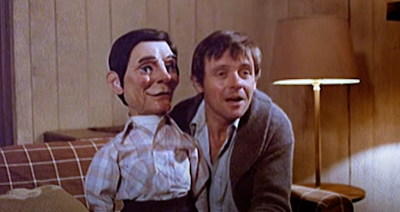The same actor also plays her own twin sister.
There’s humour and strong characterisation, but the film is slightly spoiled by the tricksy gimmick of showing us a band playing the incidental music. Repeatedly, when music begins, it fits the scene perfectly and helps build atmosphere – only for the camera to pan back or around to reveal the trio of musicians playing it. This device is clever, but after the first instance becomes quite irritating and erodes the narrative. In some scenes, Halla is meant to be alone as the plot is about her isolation, so placing her in a room full of musicians completely undermines that effect.

















































